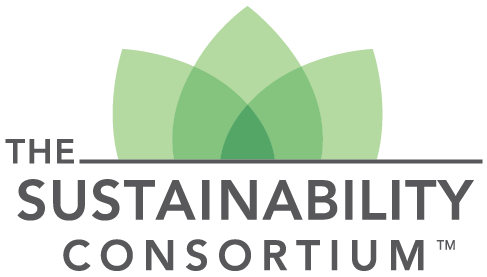Scottsdale, AZ, October 25, 2021 –The Sustainability Consortium (TSC) reported today that they will be transforming their existing manually-operated commodity mapping tool into a web-based, self-guided resource that will rapidly increase the number of companies that can access commodity data points. This new online tool will enable companies to self-map risk assessment and action recommendations of all food and fiber-based commodity supply chains, covering the global production of over 200 commodities. This work is made possible through funding by the Walmart Foundation.
Most companies have little knowledge of their supply chain origins. TSC’s commodity mapping program has created and piloted a platform to predictively model where supply chains are most likely located using very limited information. This platform is based on TSC’s proprietary Trade Network Model which combines global maps of agricultural food and fiber crops with international annual import and export statistics.
“TSC is uniquely positioned to reach suppliers and support them in their sustainability journey by providing a jumping off point for understanding the potential origins and impacts of different crops. The commodity mapping tool fills a gap and helps companies to get started and gain a deeper understanding of their supply chain impacts and opportunities,” says Christy Slay, senior director, science and research applications, at TSC.
With additional funding, the expanded plans for the commodity mapping tool may let users:
- Access and self-run the tool on an easy-to-use web-based platform
- Engage and create interactive visualization using maps and dashboards of supply chain analysis in a shareable format
- Securely upload procurement data and easily transition from relevant KPIs to this data tool
- Access new datasets to improve both crop and risk analysis
- Let a company estimate the carbon impact of its supply chain as it relates to recent deforestation
- Better connect to THESIS hotspots to understand the context of TSC’s metrics and product performance
- Leverage collaboration with the World Resources Institute to improve the resolution of commodity-driven and smallholder deforestation
During the project, TSC will pursue integration with existing data and platforms and ultimately seeks to make the tool open access.
“Upgrading the Commodity Mapping Tool will enable consumer goods companies to more effectively protect, restore and sustainably manage natural resources,” said Julie Gehrki, Vice President and COO, Walmart Foundation. “By increasing the information available on the origins and environmental and social risk factors of commodities, the upgraded tool will provide access to the insights needed to drive more sustainable supply chains.”
Commodity mapping is already a part of TSC’s core programming and utilized by companies. TSC’s existing tool and program enables companies to visualize and communicate sustainability issues or hotspots present in food and fiber product supply chains through maps and dashboards. By seeing risks present in commodities, companies can use this tool to understand, prioritize and manage risks in their value chain, even if they do not know exactly where their commodities originate.
TSC translates the best sustainability science into business tools that are used all over the world to create more sustainable consumer products. Their full impact report is available here.
About TSC
The Sustainability Consortium (TSC) is a global non-profit organization transforming the consumer goods industry to deliver more sustainable consumer products. We work to enable a world where people can lead fulfilled lives in a way that decouples their impacts on people and the planet. Our members and partners include manufacturers, retailers, suppliers, service providers, NGOs, civil society organizations, governmental agencies and academics. TSC convenes our diverse stakeholders to work collaboratively to build science-based decision tools and solutions that address sustainability issues that are materially important throughout a product’s supply chain and lifecycle. TSC also offers a portfolio of services to help drive effective improvement and implementation. Formed in 2009, TSC is jointly administered by Arizona State University and the University of Arkansas and has a European office at Wageningen University and Research in the Netherlands. For more information visit www.sustainabilityconsortium.
About Philanthropy at Walmart
Walmart.org represents the philanthropic efforts of Walmart and the Walmart Foundation. By focusing where the business has unique strengths, Walmart.org works to tackle key social and environmental issues and collaborate with others to spark long-lasting systemic change. Walmart has stores in 26 countries, employs more than 2.2 million associates and does business with thousands of suppliers who, in turn, employ millions of people. Walmart.org is helping people live better by supporting programs to accelerate upward job mobility for frontline workers, advance equity, address hunger, build inclusive economic opportunity for people in supply chains, protect and restore nature, reduce waste and emissions, and build strong communities where Walmart operates. To learn more, visit www.walmart.org or connect on Twitter @Walmartorg
